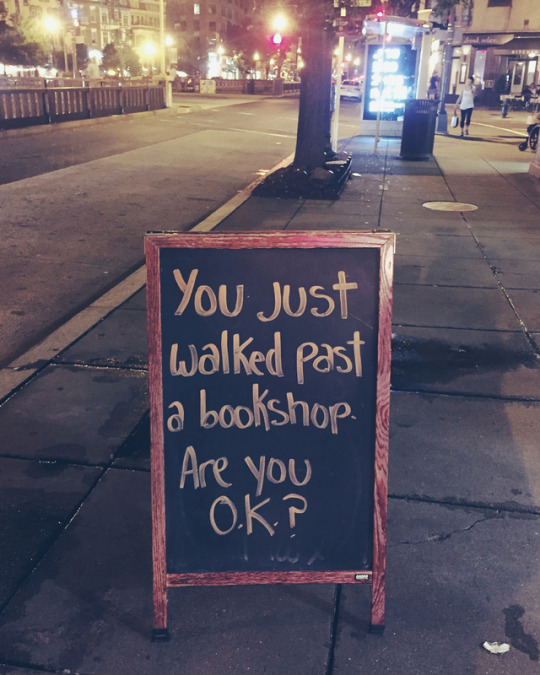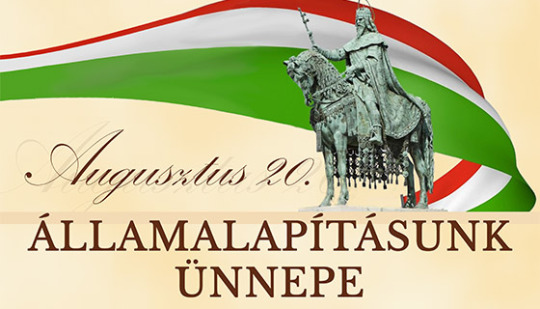Note
✨💛 This is the Amazing Person Award! 🏆Once you are given this award you are supposed to paste it in the ask of eight different people, who, in your opinion, deserve it. If you break the chain nothing will happen, but it is sweet to know someone thinks you're amazing inside and out 💛✨
Thank you so much!
7 notes
·
View notes
Text
Ramadan vocab in Hungarian
Translated from @languagesandshootingstars‘ Finnish list, which was inspired by @langrecs‘ vocabulary list
Ramadán - Ramadan
Boldog ramadánt! - Happy Ramadan!
Naptár, kalendárium - calendar
Hónap - month
Böjt(ölés) - fasting
Böjtölni - to fast
Tartózkodni (valamitől) - to abstain (from something)
Étkezés - meal
Dátum - date
Hajnal, virradat - dawn
Napkelte* - sunrise
Napnyugta* - sunset
Újhold - new moon
Korán - Quran
Olvasni - to read
Idézni - to cite
Az elrendelés éjszakája - Laylat al-Qadr
A böjt megtörésének ünnepe - Eid al Fitr
Ünneplés - feast, party, celebration
Ünnepelni - to celebrate
Hit - faith
Ima, imádság - prayer
Imádkozni - to pray
Zarándoklat - pilgrimage
Jótékonyság - charity
Alamizsna - alms
Mekka - Mecca
Mecset - mosque
Iszlám - Islam
Muszlim - Muslim
And to any Muslim followers I might have, Happy Ramadan! :)
*If you’re learning Hungarian, you might have encountered the words napfelkelte for sunrise and naplemente for sunset. There is a slight difference between these two pairs of words, but it’s difficult to explain. Napfelkelte and naplemente refer more to the sight of the sun rising/setting, while napkelte and napnyugta are more like “boundaries”. So if you want to ask someone if they want to watch the sunrise/sunset with you, napfelkelte and naplemente are the words you should use, and if you’re talking about fasting, napkelte and napnyugta are slightly more appropriate. (This is C2+++ knowledge I think, I wasn’t even aware of the fact that we had two words for the same thing until I wrote this post, but anyways, I thought it might be interesting.)
31 notes
·
View notes
Note
@ the cute Finnish with the ös: I'm a native Hungarian too and when I write ő or ű it always looks like if I wrote an o/u with an other, smaller u on top. It's also because I try to write fast :D
^^
6 notes
·
View notes
Photo


The beauty of the Finnish language ;)
(more here https://vocapp.com/dirty-inappropriate-finnish-expressions-flashcards-829385)
430 notes
·
View notes
Note
Hi! I'm Finnish and learning Hungarian. I was wondering if you guys do "shortcuts" when writing by hand like we do in Finnish. Like instead of writing ö with the two dots on top some just draw a line so it looks like ō. I automatically do this even when writing down Hungarian words so I started to wonder if I should do it properly instead :D
Hi! Yes, that is definitely something that many of us do, using horizontal lines instead of the two dots on ö and ü (especially when trying to write really quickly), but teachers tend to mark it as a mistake, so I personally try to avoid it (but it still happens sometimes). So it’s up to you :D I think this is the only “shortcut” that we have (besides abbreviations and such). And good luck with Hungarian! :)
7 notes
·
View notes
Text
Mirci is also pretty common, I think. :)
What are some names for cats in Hungarian? Asking for a friend.
16 notes
·
View notes
Text
Mutuals appreciation saturday: The Hungarian Squad
@finnishfun ( @inmyscarecrowdreams @bara-karlek)
@mazsolacska
@skarpi7
@holalengyelvagyok
@hungarian-explained
@hungarian-lingots
@thehungarianandthefrenchie ( @pingvinkecs )
@im-studying-hun ( @crap-iccioso)
@miserabella
@languagesandfrens
@paleaeograph
@smetanovarevoluce
@studyin-dancin
@rinkodesu
If we are mutuals and you study Hungarian or ARE Hungarian and I have not mentioned you here I’ll be glad to add you!
27 notes
·
View notes
Text
Reasons to Learn Hungarian!!
☆ no gender!! Forget all that matching verbs or adjectives with noun gender, there is none!!! Furthermore they only have one word for “he/she” (ő) and it’s completely neutral!!!
☆ it’s pretty much completely phonetic!! Once you learn how to pronounce each letter that’s it babey you’re done!! There’s really only one sound that we don’t have in English and that’s “gy” but I learnt how to pronounce it and so can you!!!
☆ n o d i a l e c t s ! ! ! You heard right! You know how German, Finnish and Norwegian, etc all have regional dialects that may or may not be understood by someone who only knows the standard language??? That whole “spoken Finnish differs from written Finnish” business??? Not an issue in Hungarian!!! Other than some normal regional vocabulary variations and such (and a few more differences in Hungarian spoken in Transylvania), Hungarian is pretty much the same all around!! Anywhere you go in Hungary speaking normal Hungarian you’ll be understood and will understand everyone else!!!
☆ so the 17 cases might be scary to see at first but it’s seriously SO logical and simple!!! Each one corresponds to a very exact thing and the basic uses are very sensible and easy to learn!! The language is like a nice logical puzzle that fits together perfectly when you have all the right pieces!!!
☆ also adjectives don’t have to match up with cases like in, for example, Finnish!!! Unless you’re using the adjective predicatively (as in “the girls are pretty”) you don’t have to decline it!! You just use the normal adjective it’s so easy!!!
☆ only two verb tenses are really used!!! Present and past!!! There’s conditional and subjunctive/imperative but they’re also really easy!! So there’s like four major tenses compared to what, like, 20 in french or Spanish???? Hungarian conjugation is so simple !!! (There’s also the permissive tense but it can be saved for later and it’s also really easy too I promise!!)
☆ going back to cases, the endings are really simple!!! If you’ve studied Finnish you know that you gotta change this or that letter and do this or that, but in Hungarian you just -bam- stick the ending on! You just gotta know vowel harmony and sometimes there are linking vowels but you seriously just slap the ending on there 90% of the time without the stem changing into some weird stuff!!
☆ counting is really simple and logical!!
☆ it’s just a really pretty language and sounds so smooth and melodic I love it!!!
☆ you get to be in on all the Hungarian memes which I promise you is a wonderful addition to your life
663 notes
·
View notes
Note
6, 26, 27, 39 for the ask thingy :)
God, I’m sorry this is so late, I meant to answer this and then it completely slipped my mind!
6. Do any of your family members or relatives speak a language you don’t?Well, none of my close family members do, but my uncle lives near the border with Slovakia and his children go to a school where Slovak is a compulsory subject, so they do speak it a little while I don’t.26. What are your favourite language learning resources?I’m a big fan of Memrise, so I generally use that, as well as other internet resources, depending on the specific language. I’ve also found that reading is really helpful for me, so as soon as I get to that point where I can understand a story, however simple it may be, I generally start looking for books in that language.27. What language books and dictionaries do you own?Oh my, I won’t list all of them because I have way too many (and most of them use Hungarian as a base language), but here are the “international” ones:- Oxford Advanced Learner’s Dictionary (an old copy, used to be my Mom’s)- Macmillan: New Proficiency Testbuilder- Grammaire progressive du français, niveau intermédiaire- Preparación al DELE nivel B2- Instituto Cervantes: Las 500 dudas más frecuentes del español- Teach Yourself: Swedish Tutor
39. What is your definition of the word “fluent”?I’d say being able to express yourself in most situations with the same ease as you would in your native language.
5 notes
·
View notes
Text
Thank you for the shoutout! :)
Follower Friday
@svalstudies
@dottyspeaks
@magyarcowboy
@kiwiverb
@sthlmblr
Welcome! :)
The Follower of the week is @hungarian-explained, one of my fellow Hungarian followers (and also a Finnish learner in brackets :D), as well as a good blog for Hungarian resources. Her target langs are French, Swedish and English and Spanish (preparing to be a teacher of those two!) And also planning to post about her target langs as well as Hungarian. Feel free to ask her any Hungarian or Hungary-related questions! :)
10 notes
·
View notes
Photo


Don’t worry… we passed the sign on our way out
9K notes
·
View notes
Photo

What is your native language?
What dialect or variety of your native language do you speak?
What other languages do you speak and on what levels?
Do you think you have a strong accent?
What official and minority languages are spoken in your country?
Do any of your family members or relatives speak a language you don’t?
If you want any children, do you want to raise them multilingual?
What languages are you currently learning?
When and why did you start learning the languages you’re learning?
What languages would you like to learn in the future?
What languages are you not interested in learning?
Is there a language that you’re interested in but are too scared to learn?
Have you ever stopped learning a language?
If you could instantly learn any language in the world without having to study it, which one would you choose?
Are you interested in learning any dead or endangered languages?
Are you interested in learning a sign language?
Are you interested in learning a conlang or creating one?
What do you think is the best thing about learning languages? How about the worst?
What language do you think is the most beautiful?
What language do you think has the prettiest script?
Which languages do you think are underrated/overrated?
What language do you think is the hardest to learn? How about the easiest?
What methods and techniques do you use to study languages?
Do you prefer to learn languages at school or by yourself?
Do you prefer to concentrate on only one language at a time or learn multiple languages at the same time?
What are your favourite language learning resources?
What language books and dictionaries do you own?
What are your favourite apps or websites for language exchange?
Which do you like learning more, vocabulary or grammar?
What advice would you give someone who is trying to learn a foreign language for the first time?
Are you willing to teach or help anyone who is trying to learn your target language or a language you’re proficient in?
What is your favourite word in one of your native or target languages?
What is your favourite idiom or proverb in one of your native or target languages?
What is your favourite tongue twister in one of your native or target languages?
Have you ever been to a country where your target language is spoken?
What is your favourite thing about the country/culture where one of your target languages comes from?
Have you ever been mistaken for a native speaker of your target language?
How does your personality change when you speak another language?
What is your definition of the word “fluent”?
What is your definition of the word “polyglot”?
What do you think about the statement “learning languages is cultural appropriation”?
Are you interested in linguistics?
Which field of linguistics do you find the most interesting?
Is your dream job somehow related to languages or linguistics?
Do you have any language learning or polyglot role models?
How do other people react to your language studies?
Why did you start your own langblr?
Do you think having a langblr benefits your language studies?
What do you think about the langblr community?
Who are your favourite langblrs?
1K notes
·
View notes
Photo

Today’s google doodle in honor of Hungary’s national day.
43 notes
·
View notes
Note
🇸🇰, 🇧🇾, 🇩🇪 please !
slovakia 🇸🇰: how many languages can you speak?Well, that depends on how you define the ability to speak a language…if I don’t include Hungarian, I think I’ll have to say 2, English and Spanish. My French and Swedish are quite basic as of right now (though I sometimes understand texts surprisingly well) and I’m still getting to grips with Finnish. belarus 🇧🇾 : last book you read?Lola and the Boy Next Door by Stephanie Perkins. (Embarrassing for an almost-adult, I know.)germany 🇩🇪 : do you like bread?Yes! (Are there actually people who don’t?)Thanks for the questions! :)
3 notes
·
View notes
Note
hungary, norway, scotland!
hungary 🇭🇺 : would you date someone 3 years older than you?Yeah, I definitely would, it doesn’t sound like too big of an age difference to me (I’m 23).norway 🇳🇴 : do you prefer wearing trousers or skirts?I’m the sort of person who spends 98% of their days wearing jeans and a T-shirt, so pants for sure!scotland 🏴 : do you prefer summer or winter?A couple of years ago my answer would have been “summer”, without a doubt, but considering how unbearably hot it has been almost all summer, I’m now slightly more inclined to say winter. I can’t really choose, there are things that I love and hate about both of them.Thank you for asking! :)
3 notes
·
View notes
Text
20 August in Hungary
Another (possibly the biggest) of our national holidays is celebrated on 20 August. It is the day we celebrate the foundation of the country and our first king, Stephen I. 20 August was the day he was canonized. There are various traditions to celebrate on this day, including a procession, introducing the “cake of the country” (a different cake every year) and fireworks in the evening.

nemzeti ünnep - national day
ünnepnap - public holiday
munkaszüneti nap - non-working day
államalapítás - foundation of the state
állam - state, country
ország - country
augusztus huszadika - 20 August
Szent István - Saint Stephen
I. (első) István - Stephen I. (the first)
Magyarország - Hungary
koronázás - coronation
szentté avatás - canonization
szent - saint
király - king
királyság - kingdom
Szent Jobb - ‘Holy Right’ (Stephen’s right hand which is displayed in St Stephen’s Basilica in Budapest. Every 20 August there is a procession where they carry it around the country)
bazilika, székesegyház - basilica
körmenet - procession
tűzijáték - fireworks
torta - cake
új kenyér ünnepe - celebration of the ‘new bread’ (in many places freshly baked bread is presented and consecrated in the church)
89 notes
·
View notes
Text
Make-up in Hungarian
(I hope no one has done this one before!)
smink - make-up
sminkelni - to use make-up
feltenni egy kis sminket - to put a little make-up on
Also:
Anna minden reggel kisminkeli magát. - Anna puts make-up on every morning.
kozmetikum - cosmetic product
alapozó - foundation
korrektor - cover stick
púder - powder
pirosító - blush
bronzosító - bronzer
szemhéjpúder - eyeshadow
szemhéjtus - eyeliner
szempillaspirál - mascara
műszempilla - fake eyelashes
rúzs - lipstick
szájfény - lipgloss
szájceruza - lipliner
ajakbalzsam, ajakápoló - lip balm
nesszeszer - cosmetic bag
ecset - brush
applikátor - applicator
szivacs - sponge
szempillagöndörítő - eyelash curler
hegyező - sharpener
ragasztó - glue
sminklemosó - make-up remover
vattakorong - cotton pad
vízálló - waterproof
bőr - skin
bőrtípus - skin type
száraz - dry
zsíros - greasy (oily)
kevert - mixed
bőrhiba - blemish
pattanás - zit
mitesszer - blackhead
ránc - wrinkle
használni - to use
kiemelni - to accentuate, to bring out (e.g. the color of someone’s eyes)
elrejteni - to hide
elfedni - to cover
45 notes
·
View notes